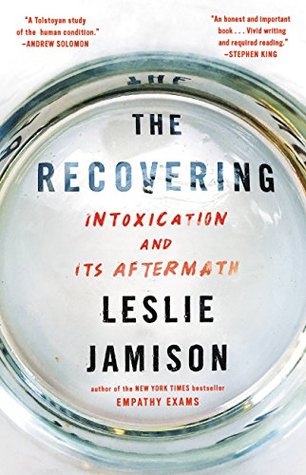More on this book
Community
Kindle Notes & Highlights
Read between
September 12 - September 14, 2024
He was a fragile oracle. Of Henry, he wrote: Hunger was constitutional with him, wine, cigarettes, liquor, need need need Until he went to pieces. The pieces sat up & wrote. Hunger ran in the family. Berryman’s mother wrote to him about craving her own mother’s affection: “I, who longed for her love and have love-groped my way through life for the need of it.” Berryman’s own need broke him into pieces, but the pieces got the writing done.
Rhys once wrote that she learned early that “it was bad policy to say that you were lonely or unhappy,” and Sasha is an explosion of bad policy. Her consciousness runs on an engine of wearisome hydraulics, bringing in the booze and pumping it out as tears. Sasha is a grotesque version of what Rhys always feared she would become: a pariah who drove everyone away by showing the intensity of her unhappiness.
“addiction” has always been two things at once: a set of disrupted neurotransmitters and a series of stories we’ve told about disruption. Addiction becomes a contagious epidemic, a willful abnegation of civic duty, a valiant rebellion against the social order, or the noble outcry of a tortured soul. It depends on who is doing the telling, and the using.
But during the decades that followed, the American legal system would polarize alcohol and drug addictions into separate categories in the public imagination: the former a disease, the latter a crime. It can be tempting to equate “hard” drugs with addiction, or booze with recreational use, but in truth the distinction between them is mainly grounded in social norms and legal practice; and it hasn’t always been this way.
One 1995 survey asked participants: “Would you close your eyes for a second, envision a drug user, and describe that person to me?” Even though African Americans constituted only 15 percent of the nation’s drug users, 95 percent of the respondents pictured someone black. This hypothetical drug user was the product of decades of effective storytelling.
The unrepentant addict pushes back—in thrilling, necessary ways—against rabid moralizing rhetoric and the kinds of social control that often masquerade as rehabilitation.
Nursing a hangover: You have to care for the aftermath, like a child you’ve given birth to.
Alcoholic self-pity wasn’t the secret engine of The Dream Songs, as Lewis Hyde had it, so much as their explicit subject. “You licking your own old hurt,” Henry tells himself, inflating his self-pity so he can puncture it: What the world to Henry did will not bear thought. Feeling no pain, Henry stabbed his arm and wrote a letter explaining how bad it had been in this world.
It made me think of the calligraphy poster in Infinite Jest, hanging in the Ennet House bathroom: EVERYTHING I’VE EVER LET GO OF HAD CLAW MARKS ON IT.
But she also wasn’t sure what was left of her without drinking. “If you carve me out,” she wondered, “will there be enough here to be a person?”
You can reclaim some things once you’re ready; they’ve been waiting for you patiently. But some things are just lost for good.


